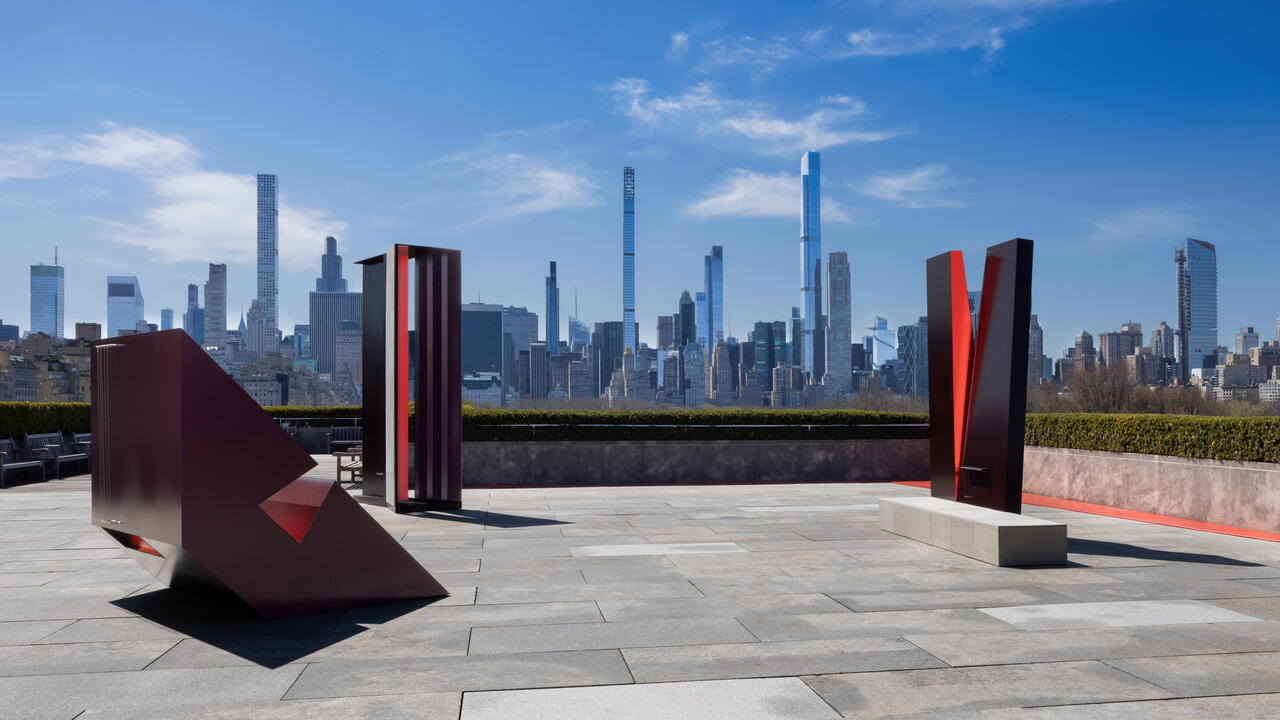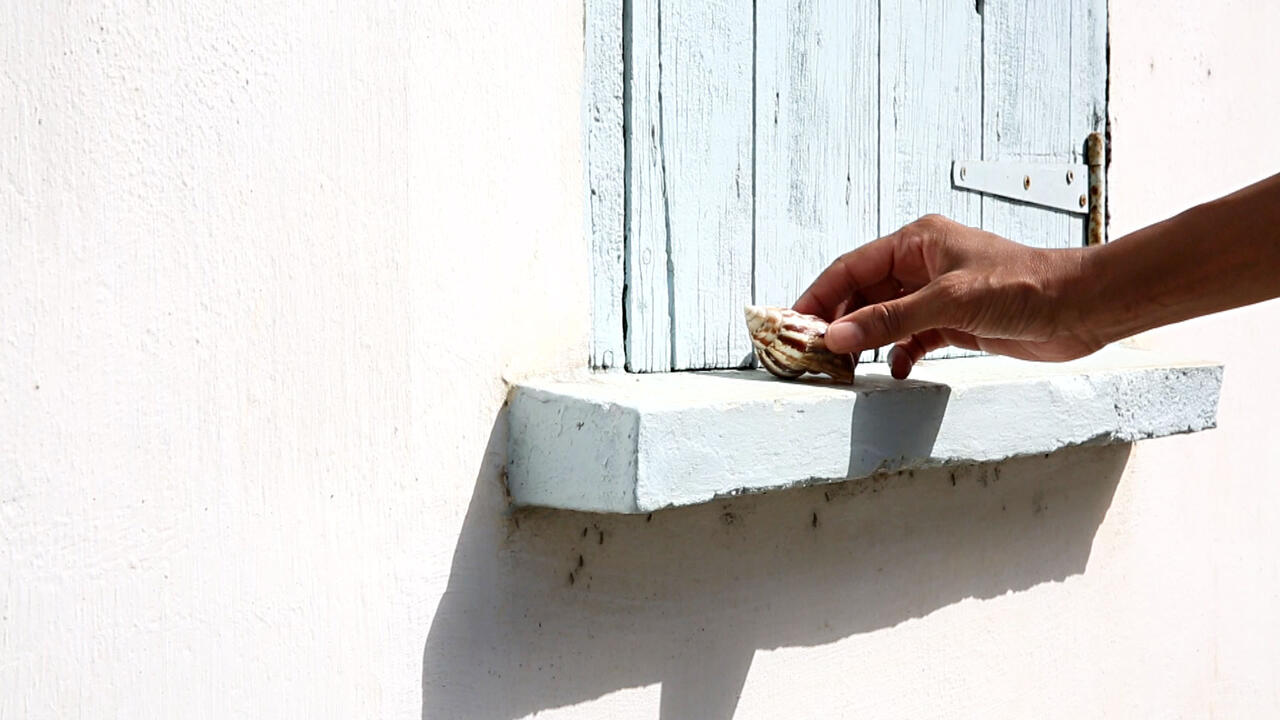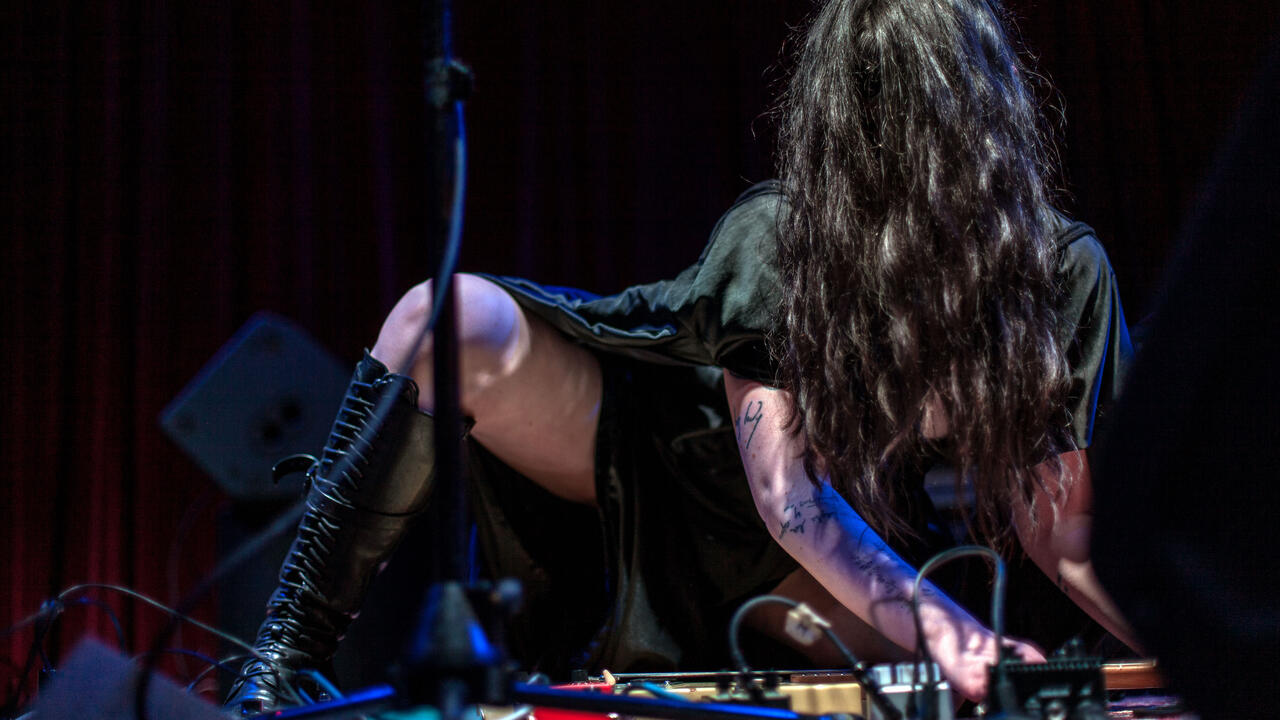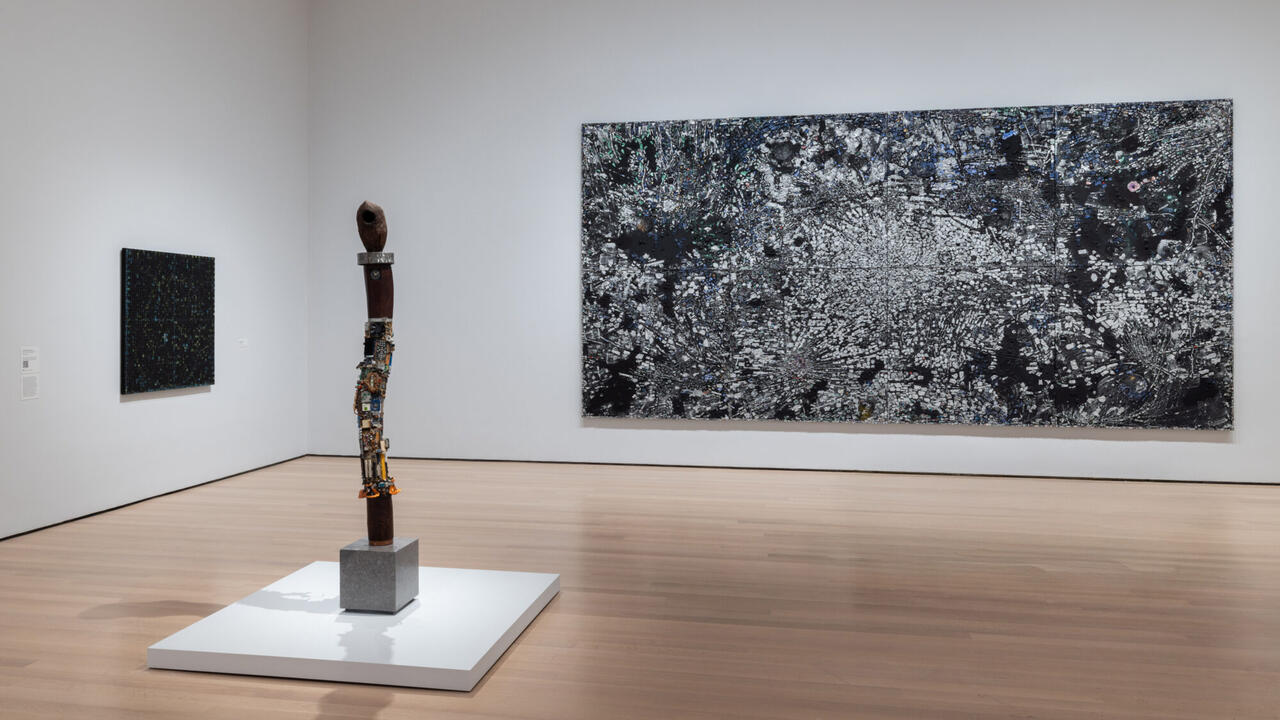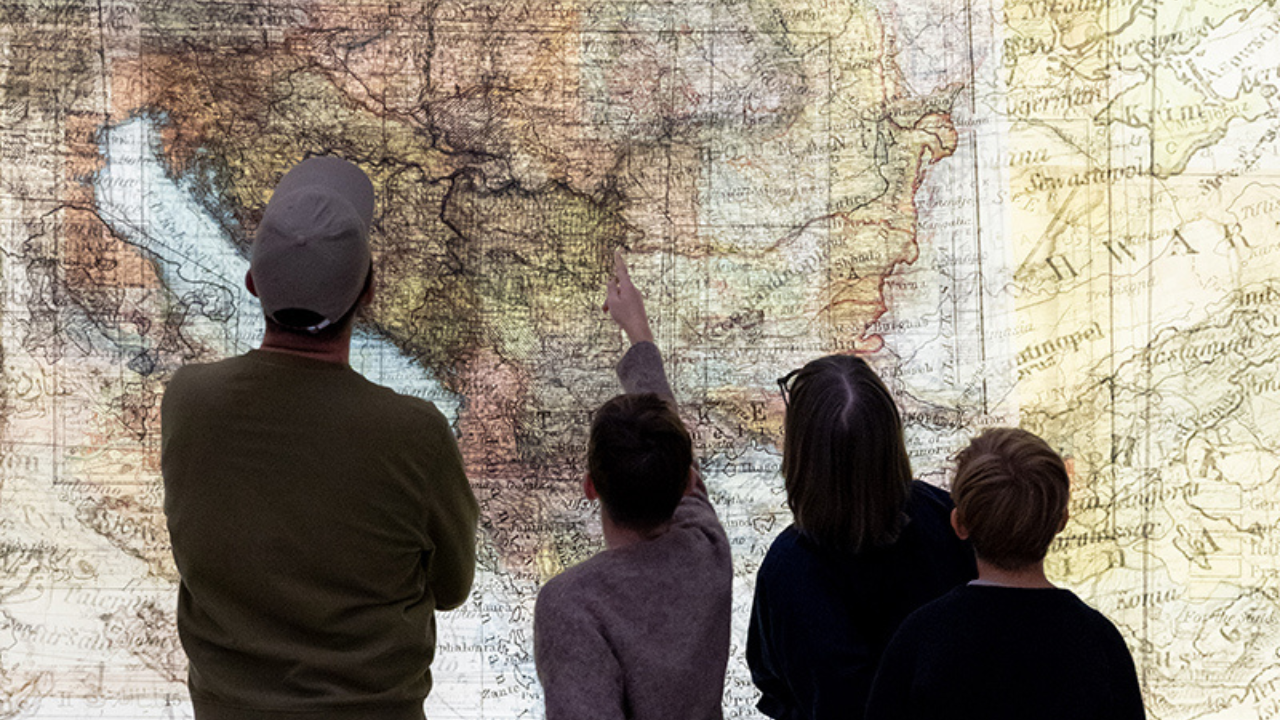Sounds Funny: A Report from the Borealis Festival
At this year’s platform for experimental music in Bergen, laughter was the most striking sound
At this year’s platform for experimental music in Bergen, laughter was the most striking sound

Travelling from London to Norway always feels like a journey from home to home. There’s the weather (bad), the cost of everything (high), the perfect spoken English – only, more so. (It is also, I should say, friendlier, more socially democratic and incomparably more beautiful.) In the port city of Bergen, on Norway’s west coast, even the new music festival has a British flavour. Since its founding in 2004, the annual Borealis Festival of experimental music has earned a reputation as one of Europe’s most adventurous new music festivals. Between 2008 and 2014, its director was the British composer and artist Alwynne Pritchard; during her tenure, concerts were presented at a racetrack, in a recycling plant and a decommissioned IKEA department store.
Since then, Borealis has rested in the equally capable and imaginative hands of curator and radio producer Peter Meanwell. One of this year’s events (and for me, one of the musical highlights) was a promenade concert spread amongst different rooms of the public library, performed by avGardEns and featuring music by Pritchard, Jostein Stalheim, Eilert Tøsse, Ljubov Katerli, Marcus Davidson and Kristin Bolstad. Another was a project by Reykjavík’s S.L.Á.T.U.R collective, involving five actors who toured the city dressed as over-sized geometric shapes. Thus incapacitated (unable to reach things, fit through doors) but highly visible, they became a relational artwork on the subject of ‘radical hospitality’, or the idea of the festival participant as both a guest and a hostage.

The final event in the programme was the most unconventional. Papillon and the Dancing Cranes (2018), by the American composer Natacha Diels, featured music from Ensemble Pamplemousse and the Pinquins percussion trio, and a concertante group of three bright green construction cranes. Arranged at one end of Bergen’s Festplassen square with snow-covered mountains as their backdrop, the three cranes slowly swung and swayed, operated by drivers from Nordic Crane Vest. (There was surely a pun at work here, as at times their movements resembled the mating dance of long-necked birds.) As the sun went down and the square became darker, the cranes looked sinister, their geometry hard to read as they loomed overhead. Against Diels’ score of DIY electronics and percussion, the work climaxed with the cranes’ raising of a giant fabric butterfly: a moment of great delicacy from an improbable source. Luminous against the night sky, it provided a memorable visual conclusion.
The festival’s most striking thread was humour – I can’t recall having (intentionally) laughed this much at a new music event. S.L.Á.T.U.R.’s sponge people were obviously comic, and appeared once more at the after-show party to attempt a suitably absurdist concert on instruments that none of them could reach. Three short works billed as ‘Future Opera’, composed by Rebecka Sofia Ahvenniemi, Øyvind Maelund and Lars Skoglund, in association with Bergen National Opera, were much more conventional than the name suggested, but were at their best when they were funny – of note was Ahvenniemi’s mash-up of Beyoncé and ornate 17th-century recitative.

Other jokes, however, fell flat. The Norwegian composer and clarinettist Kristine Tjøgersen had two pieces in the festival, both with the same punchline: a borrowed film plays in the background, its soundtrack and replaced by the squeaks and noises emanating from a small group of live instrumentalists. The gag being, it seems, to make silly whatever it is we are looking at. The problem, here, is that the films are not Tjøgersen’s to begin with. Mistérios de Corpo (2018) overwrites Brazilian composer Hermeto Pascoal’s 2013 video of the same name, in which he plays his naked torso as a percussion instrument; We should get to know each other (2018) sets the highly choreographed energy of a Bollywood dance number (first seen in Gumnaam, 1965) against bathetic tremolos and swanee whistle-style glissandos. Tjøgersen is highly regarded in Norway – the performances of both pieces were warmly received – and clearly a composer with a rich sonic imagination, although I can’t help but wonder: at whose expense are we laughing?
Much better was Sue Tompkins’s newly-devised text work, St St Steadicam high (2018), performed at the Lydgalleriet within an installation of works on paper. It was so raw that there was almost nothing there: just voice, microphone and words. Flicking quickly through the hundreds of A4 pages on which her text was written (often only one word at a time), she strutted and skipped and swaggered, every now and then breaking out of character (or into a new one) to flash a huge grin at the audience. Her words and actions (gesturing with her mic in often inscrutable illustration) somehow combined street smarts and Christmas charades in an unrelenting, utterly captivating 20-minute show.

I didn’t make it to everything that Borealis had to offer: I saw nearly 20 events in four days, but several shows ran into the small hours and I turn into a pumpkin after midnight. But one final work deserves a mention: the premiere of Peter Ablinger’s 90-minute REMOVE.TERMINATE.EXIT (Rainpiece Bergen) (2018) saw the foyer below the concert hall hung with around 100 white dressing gowns, each of which had been soaked in water, their irregular drips captured by microphones and amplified. This sound turned out to be a framing device for the piece itself. Written for large ensemble (Bergen’s BIT20 Ensemble), electric guitar (experimental axeman Stian Westerhus) and electronics, Ablinger’s piece exhibited all the structural simplicity and psychoacoustic complexity for which his work has become known. Beginning with full-spectrum noise (more pink than white), it started with everyone and everything playing at once, at full tilt. Layer by layer, the music was stripped back – each time something was removed, something else took its place. Although the work grew quieter with each step, the space seemed to remain full, as each of the available sounds achieved a new point of equilibrium. At the end, and for eight full minutes, there was nothing but a roaring silence.
Main image: Natacha Diels and Jessie Marino from Ensemble Pamplemousse. Courtesy: Borealis festival, Bergen; photograph: Thor Brødreskift









